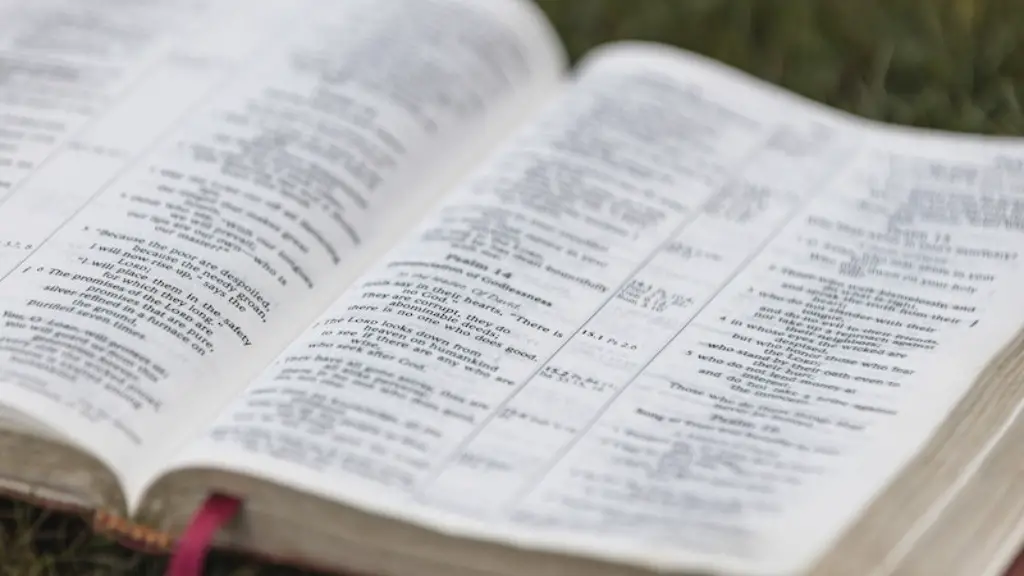Harlem: History and Relevance in the Works of Langston Hughes
The subject of Harlem, an area within New York City, is essential to the works of 20th century African-American writer, Langston Hughes. Hughes is considered a leader of the Harlem Renaissance in literature and was associated with what is known as the ‘New Negro Movement’. His poetry and prose often expressed the state of race relations at the time and the hope and pride of his people. In this article, we will explore the reasons why Hughes wrote about Harlem and the impact of his works, both during and after his lifetime.
Harlem is a collection of neighborhoods located in the borough of Manhattan in the city of New York. To the African Americans living in both the city and the nation, Harlem was a special place. It was a place of promise and hope, a ‘promised land’ for those seeking a better life. For Hughes and many other African Americans, being allowed to move to Harlem was a great achievement. It provided an opportunity to find jobs, build businesses, and find a sense of community – it was a place free from the hatred and bigotry of the places they had left behind.
The term ‘Harlem Renaissance’ was coined by literary scholar and teacher, Alaine Locke. This movement can be thought of as a reimagining of African American identity, culture and history. Born out of the Jazz Age, the Harlem Renaissance was a time of pride, progress and a growing sense of self awareness. Writers such as Hughes focused on topics such as race, identity and the black experience. His works have become a cornerstone of African American literature, representing this period. For Hughes, using Harlem as the backdrop was of paramount importance as it aided in expressing the realities of life for African Americans at the time.
Much of Hughes’ work centered on issues of race, oppression, identity and pride. Drawing from his own experiences and the experiences of those around him, Hughes wrote of the everyday challenges inherent to living in a predominantly white society. He utilized his poetic voice to engage with issues of racism and injustice with a sense of optimism and strength. He also addressed issues of self-love and black pride, arguing for the beauty and necessity of both. Hughes’ writing was, in many ways, ahead of its time, speaking truth to power and championing the rights of African Americans.
Through the use of Harlem, Hughes quickly made a place for himself in the annals of African American literature. Despite its numerous challenges, he portrayed the area as a place of hope, opportunity, and strength – a place that could represent the African American experience. Hughes’ work invoked pride, hope and a renewed sense of possibility among African Americans, as he challenged the status quo by standing up against racism and oppression.
His work continues to have genuine and measurable impact even today. Hughes’ works have become virtually synonymous with black power, pride and resilience. He achieved something greater than he could have ever imagined – he opened the door to African American representation in literature and enabled generations to come to see the strength and beauty of African American culture and identity.
Impact of Langston Hughes’ Work on Education
Langston Hughes’ work had an immeasurable impact on how African Americans and their history were portrayed in the education system, particularly in the U.S. Hughes’ writings fundamentally changed the way educators taught about African American history, culture, and identity. By introducing these literary perspectives, he provided an alternative to the preconceived notions of African Americans at the time – encouraging educators and students alike to think critically about their place in this country and in the world.
In Hughes’ works, educators found beautifully crafted stories of African American identity, pride and resilience. They felt the power of Hughes’ storytelling and words and felt inspired to teach it in their classroom. By introducing students to poems, songs, and stories of black life and experience, he was able to foster a greater understanding between teachers and students.
In addition, Hughes’ work inspired educators to make learning relevant to their students by connecting it to a real-world context. His stories and poems of African American life and experience were written in a way that resonated with students and made learning more meaningful for them. This allowed educators to impart valuable lessons, such as how history shapes the present, how the power of language can bring about social change and champion important issues, and how the strength of cultural identity can drive progress.
Through his impact in the educational system, Hughes was able to ensure that African Americans were no longer the forgotten minority in educational settings, but rather a major part of the story. His work inspired and ignited the legacy of African American representation in the education system for generations to come.
Influence on Modern Writers
Langston Hughes’ influence goes beyond just the African American educational system. His works have inspired some of the greatest modern writers and poets of our time. His simple and direct language, powerful storytelling, and candid representation of African American life and experience have made him an icon in the literary world.
For modern writers, Hughes represents the importance of staying true to oneself and one’s culture. His works inspired many modern writers to express their own experiences and identities in their works – something that was still relatively unseen prior to Hughes. His works gave permission to modern writers to express blackness in all its forms, not just the way it had been viewed previously.
Moreover, by placing importance and value on black narratives in literature, Hughes paved the way for modern writers to create works of their own. By centering stories of African American life and experience, he has provided modern black writers with a platform to tell the stories of their people. His works have inspired and motivated many to embrace the beauty and power of their cultures and express it in their works.
Message of Hope and Commitment to Equality
Perhaps the most revolutionary thing about Langston Hughes’ works is their message of hope and commitment to equality for African Americans. Through his work, Hughes made clear the important, necessary fight for racial equality and justice. He used his words to express the feelings of the African American community, and the importance and power of solidarity and strength in numbers.
Hughes wrote of the need for African Americans to continue fighting for their rights and to never lose hope. He used his platform to express and amplify the issues facing African Americans and to call attention to the injustices they faced. His works have become symbols of resistance, and his voice and words have inspired countless activists and revolutionaries.
Hughes’ contribution to literature, education, and activism has solidified his place as one of the most influential African American writers in history. Through his works, he gave a voice to a silenced, oppressed minority and enabled generations of African Americans to find their own voices and create a place of strength and resilience for themselves. We can never know what the future holds, but we do know that Langston Hughes’ legacy will remain a bright beacon of hope and inspiration for generations to come.
Impact of Langston Hughes’ Writings on Civic Engagement
Langston Hughes’ works have had a lasting effect on civic engagement within African American communities, particularly in the U.S. He wrote about the importance of mobilizing and working together in order to bring about the necessary change for the African American community. His works became symbols of resilience and hope for many who were seeking to challenge the status quo and break down barriers of injustice.
His works were not only revolutionary in their content but also in their impact. Not only did they provide inspiration, they also provided a practical model of organizing and mobilizing that many African Americans began to adopt. Through his words, he provided context and empowerment to individuals who had previously felt voiceless and powerless. He encouraged them to be active participants in the civil rights movement, rather than just passive bystanders.
In addition, Hughes’ works provided an education in their content, teaching African Americans about their rights, the political process, and their options for action. His writings helped to create an understanding of the importance of civic engagement and the power of one’s voice. He used his influence to encourage African Americans to engage more deeply with the political process, to demand representation and acknowledgement, and to fight for the rights of their people.
Langston Hughes’ works changed the way African Americans engaged with the political process, and ultimately sparked a new wave of civil rights activism. His works
have become iconic of the struggle for liberation and freedom, and his legacy continues to inspire individuals to this day.
Legacy and Significance of Langston Hughes’ Writings
Langston Hughes’ writings have gone beyond the realms of literature – they have transcended the page and left an indelible mark upon history. His works have become synonymous with the African American struggle and his stories, poems, and songs have become an essential part of the education system, as well as a source of strength, power and pride for African Americans.
His works have resonated with countless activists, educators, and students alike and he has become an icon of African American culture and identity. No longer are African Americans marginalized and excluded from mainstream literature – Hughes’ works have given African Americans a platform to express their stories and a sense of belonging that resonates across generations.
His works have enabled African Americans to fight for their rights and represent their stories and identities in a way that was previously not possible. Hughes’ works may have been written over 50 years ago, but they remain as relevant today as ever, speaking directly to the hearts and minds of an African American population in search of liberation, equity and justice.





